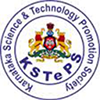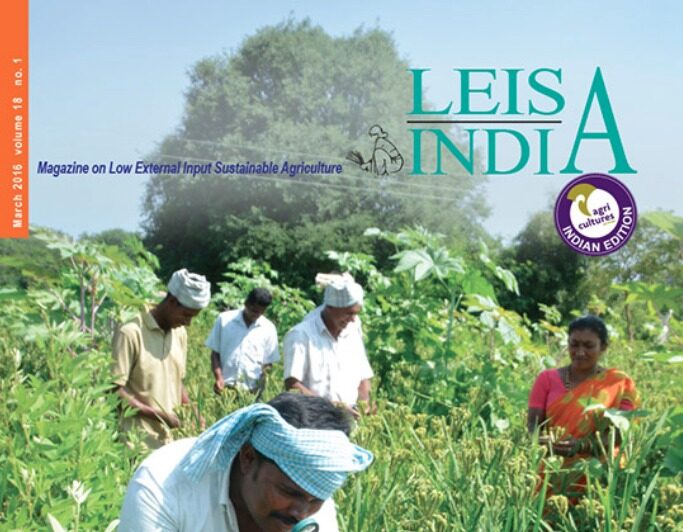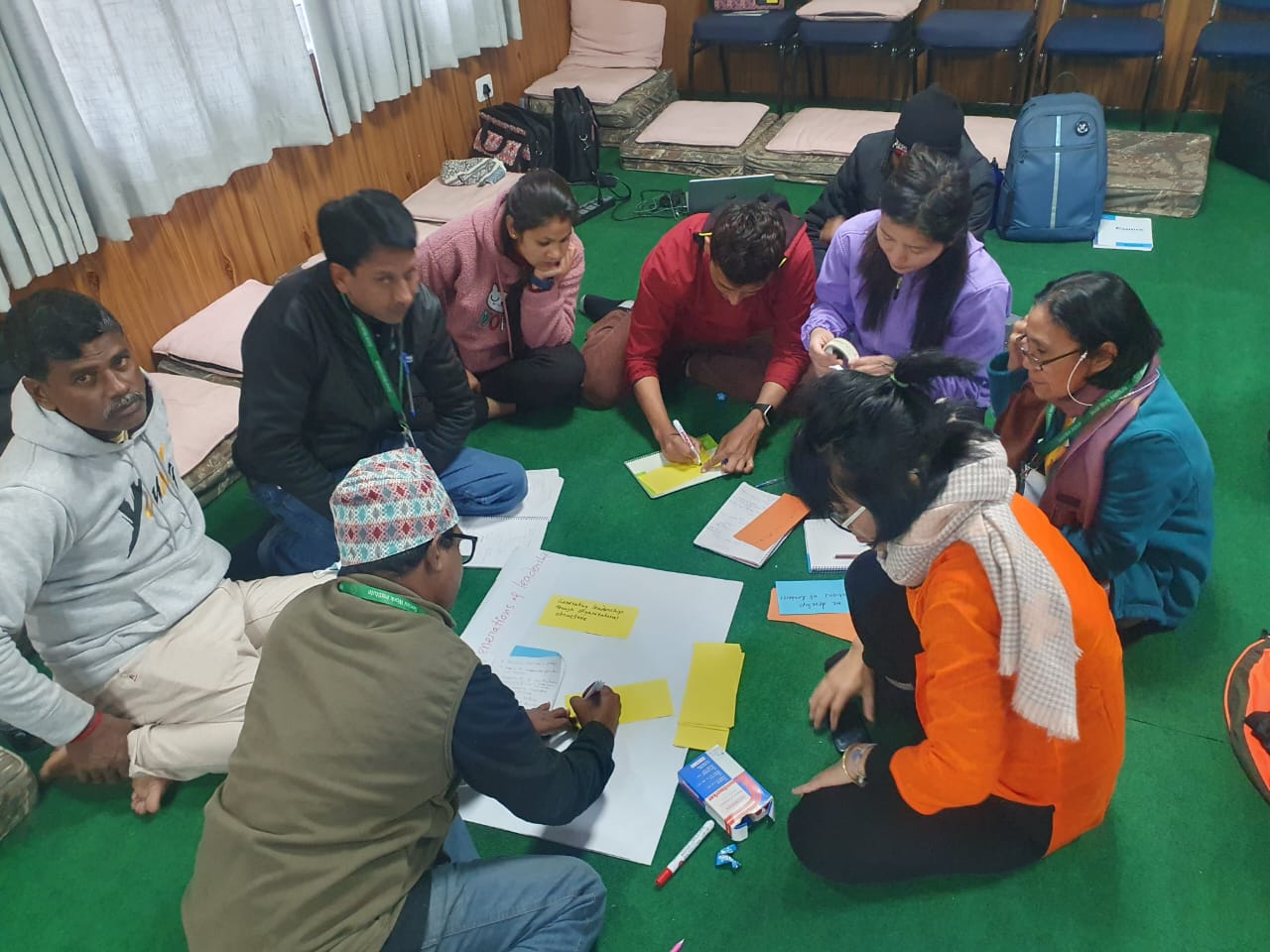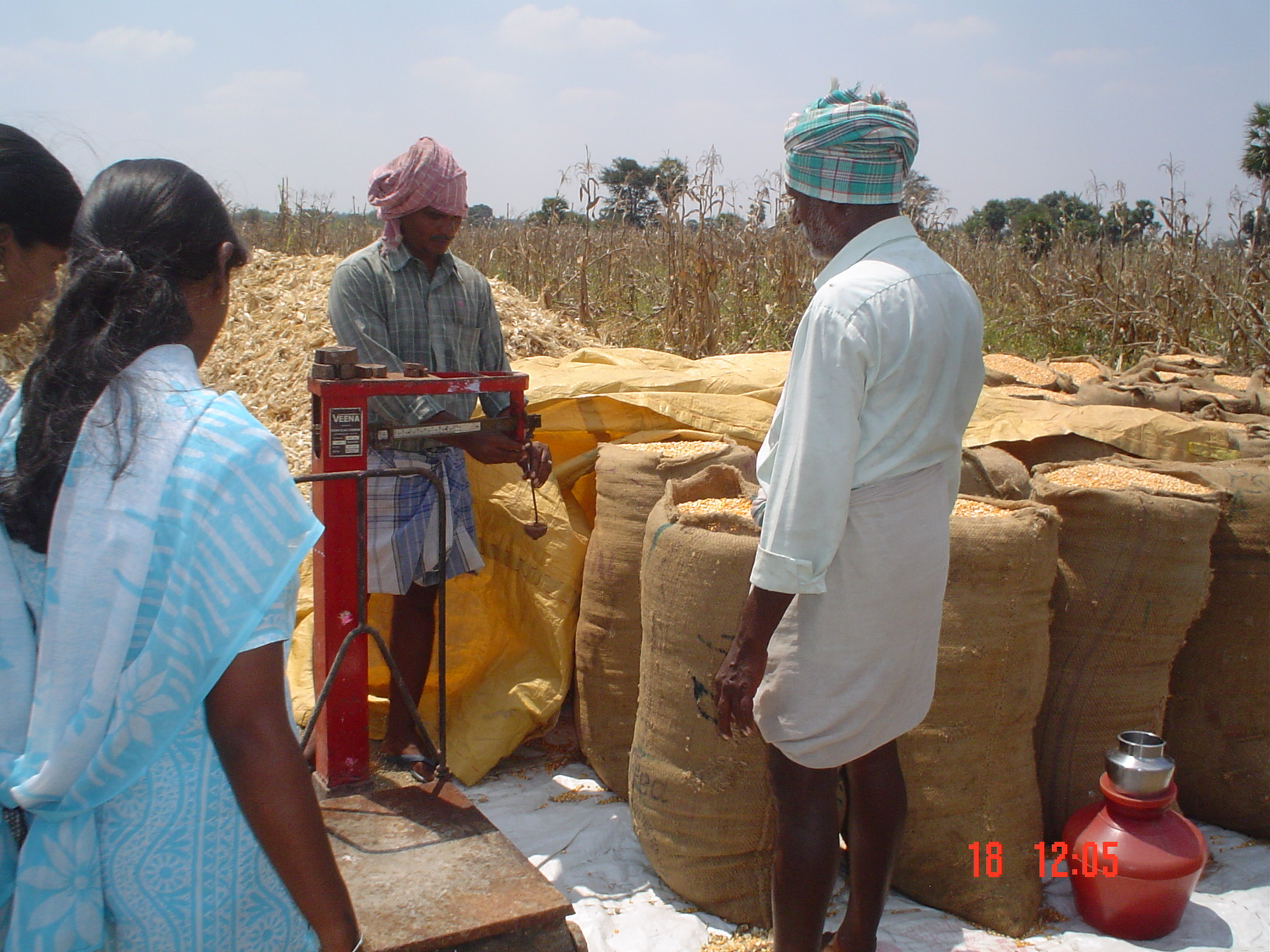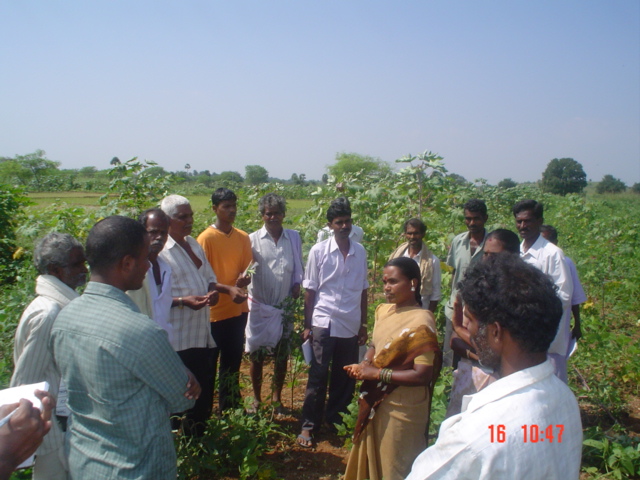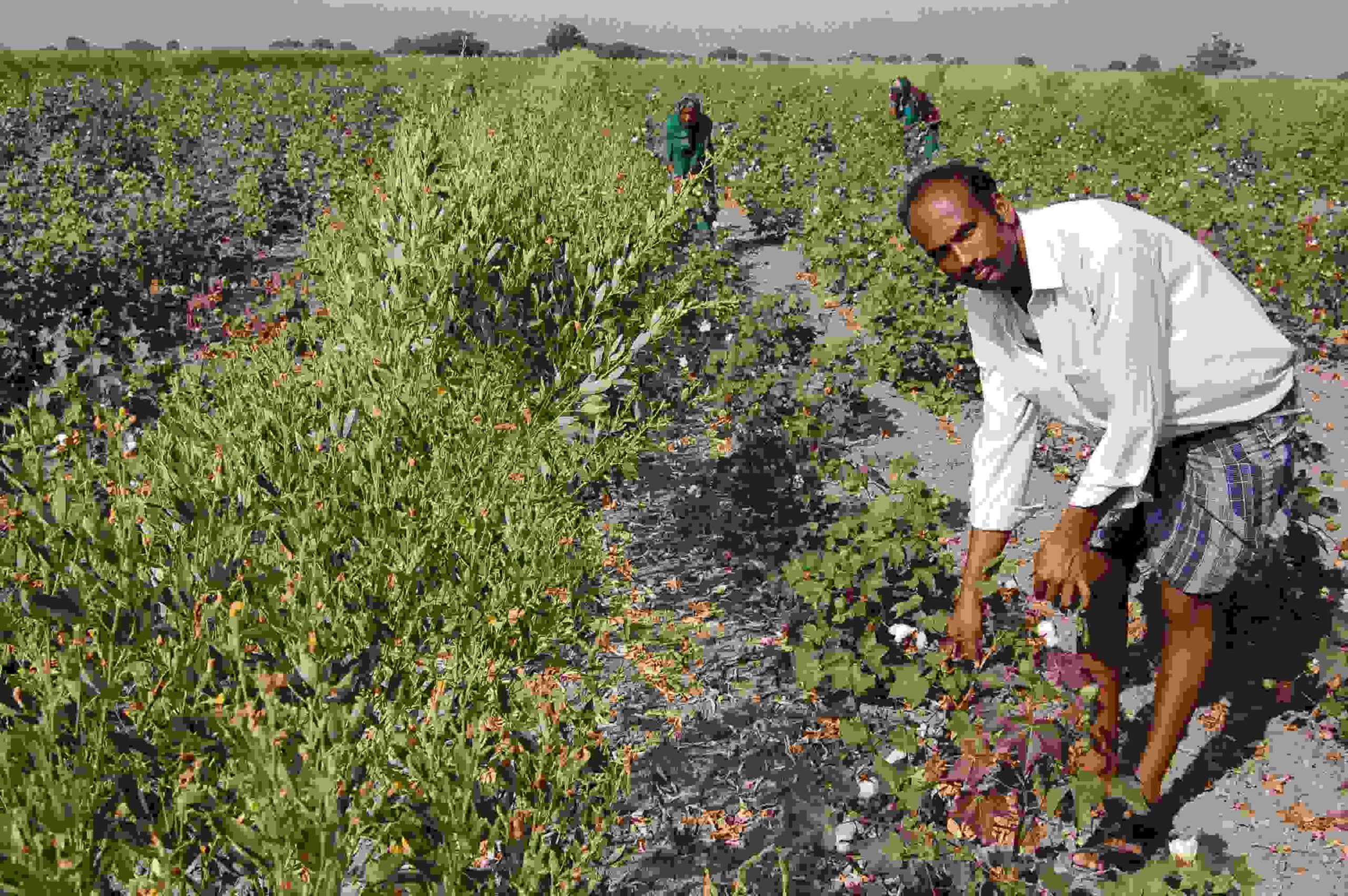AME Foundation
Strengthening sustainable small farmer livelihoods
80 G Certified | FCRA Certified | IICA Accredited
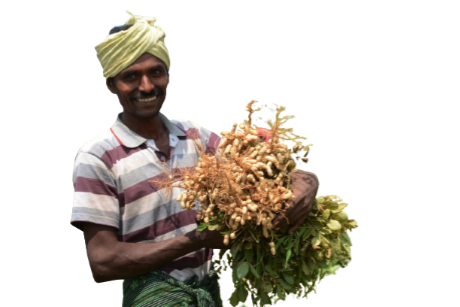
AME Foundation has been strengthening sustainable small farmer livelihoods by promoting ecological agriculture for more than three decades. AME Foundation has been guiding small and marginal rainfed farmers to manage their natural farm resources better, practice alternative eco-farming practices for enhanced yields and reduced costs. AMEF believes that sustainable management of natural resources is the key to improved livelihoods, stable agricultural development as well as improved ecological balances.
Focus Areas

Promoting Agro ecology
Agroecological systems are diverse, more resilient to the impacts of climate change and is a viable alternative, that can contribute substantially to food and nutrition security, soil fertility, access to water, rural employment, and farmer autonomy. AMEF has been promoting agro ecology in drylands since three decades through LEISA approaches.

Facilitating Knowledge Exchange
An enormous body of practices and experiences on agroecology, generated and developed on the field need to be shared widely to inspire farmers make the transition to agroecological way of farming. AMEF facilitates knowledge exchange by helping organisations systematically document and share experiences widely through various means.
Core Programs
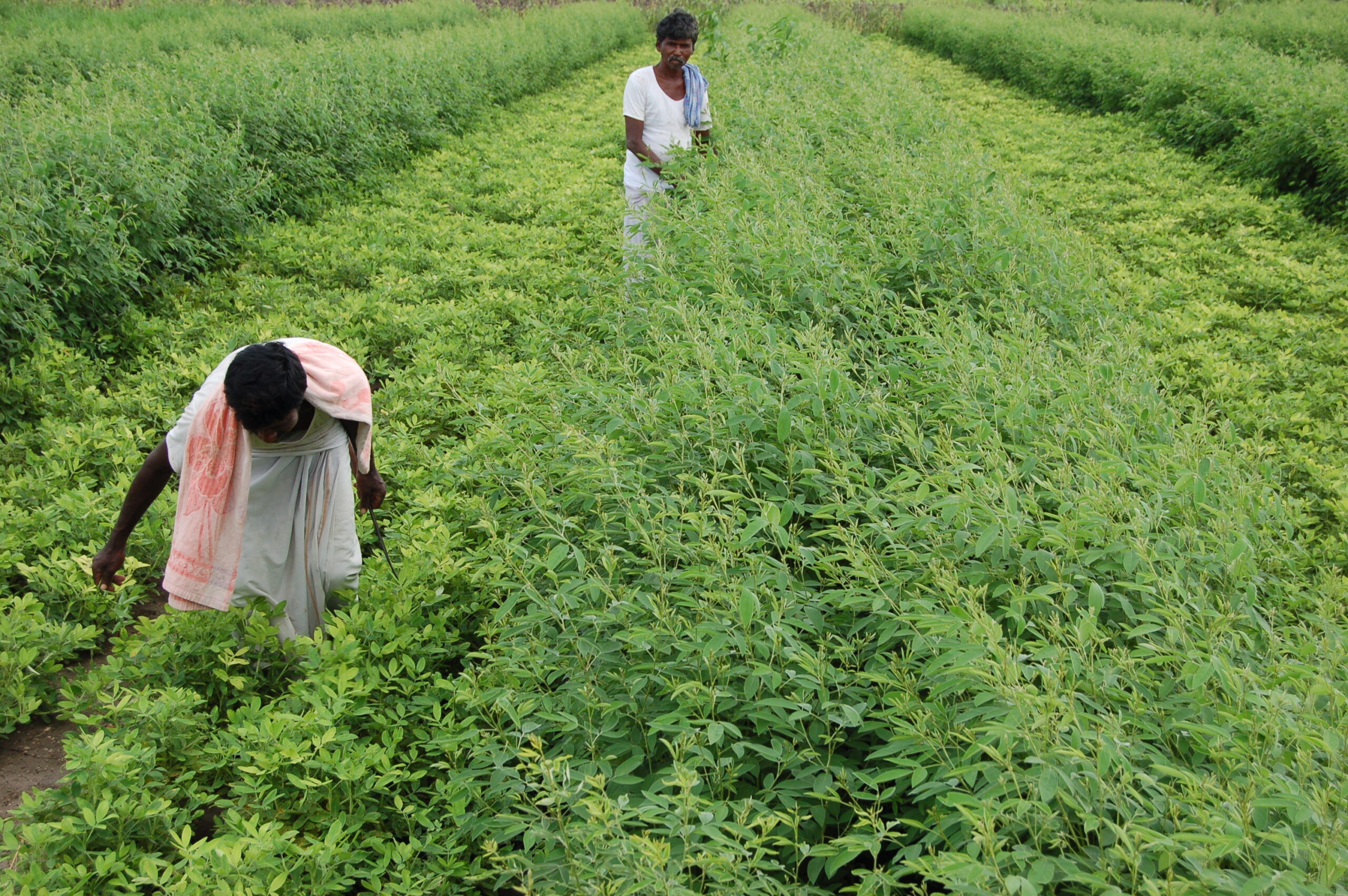
Sustainable agriculture
Promoting sustainable agriculture in rainfed regions through Low External Input Sustainable Agriculture (LEISA) approaches.

Farmer Education
Empowering farmers through participatory learning methods like Farmer Field Schools (FFS) and Participatory Technology Development (PTD)
LEISA India
Sharing knowledge on agro ecological experiences through LEISA India magazine since 25 years
Systematic Documentation
Helping development organisations in capturing and communicating field based experiences.
Outreach
Sustainable agriculture promotion
60000
Farmers Reached
30000
Farmers Trained
1968
Villages
138
Partners
Knowledge Sharing (LEISA India)
8
Language editions
23000
Readers
>1000
Agroecological experiences shared
700
Authors
Stories of change

Donate Now!
Support small farmers
Support safe food
News and Events
Field Day at Channapur village in Dharwad
Around 160 men and women farmers gathered on 8th December 2023 in Channapur in Dharwad during the field day. They shared their knowledge and experience on sustainable agriculture...
Rotary Club Hubli team visits AMEF operational areas
Rotary Club Team Hubli visited the project areas in Dharwad on 11th October 2023. They observed the sustainable project activities in Channapur and Chouragudda villages. They...
Partners in Development



